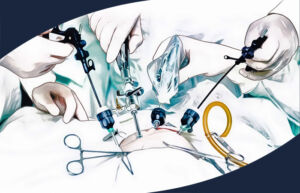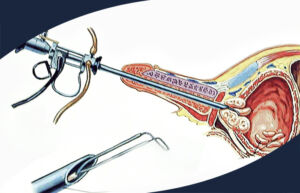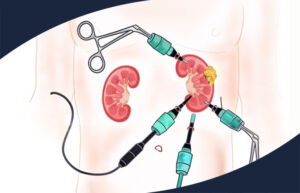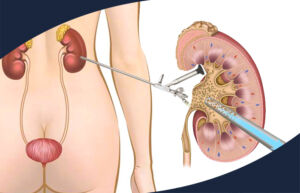UROLOGICAL CANCER SURGERIES
BENIGN PROSTATE ENLARGEMENT PROSTATE CANCER KIDNEY TUMOR BLADDER TUMOR TESTICULAR CANCER Joing Over 500,000 Students Enjoying Avada Education now
UROLOGICAL LAPAROSCOPIC SURGERY
UROLOGICAL LAPAROSCOPIC SURGERY When we look at the historical development of laparoscopic surgery technique, it was a diagnostic method in which only the inside of the abdomen was observed in the early years, but today it has become a standard treatment method in which almost any urological surgery can be performed safely. Along with the developing medical technology, there have been very rapid developments in laparoscopic surgery technology. [...]
BENIGN PROSTATE HYPERPLASIA
BENIGN PROSTATE HYPERPLASIA TURP - Transurethral Prostate Resection (Monopolar / Bipolar / Plasma kinetic) It is the most widely preferred and applied endourological prostate surgery method in the world. It can be performed using Monopolar / Bipolar / Plasma kinetic energy sources. The energy sources used have their own advantages / disadvantages, and the most important thing here is the equipment and experience of the Urologist who will [...]
PROSTATE CANCER
PROSTATE CANCER Prostate cancer is the most common type of cancer in men. It ranks second in cancer-related deaths. Prostate cancer occurs when some cells that make up the prostate tissue show an abnormal course and form a tumor. The tumor sometimes occurs in one part of the prostate, sometimes in more than one place. It can progress without causing any symptoms, and if it is not treated, [...]
KIDNEY TUMOR
KIDNEY TUMOR What is kidney cancer? Kidneys are our organs located behind the abdominal organs on both sides of our spine, right and left, which are very important for human life. Kidneys play an active role in cleaning the blood from harmful wastes and sending the wastes to the excretory system. In addition, the hormones they secrete play an important role in balancing body metabolism and blood pressure. [...]
BLADDER TUMOR
BLADDER TUMOR 75-80% of bladder tumors occur in the early stage at the first admission. The main presenting symptom of bladder tumor patients is bloody urination. Bloody urine is usually painless and is seen intermittently. Some of the patients state that they have occasional blood clots. Diagnosis in bladder tumors In cases presenting with bloody urine and suspected bladder tumor, abdominal ultrasonography is performed first. The majority of [...]
TESTICULAR CANCER
TESTICULAR CANCER Testicular cancer is the most common cancer arising from the testicles in men aged 15-44. However, testicular cancer may rarely occur before puberty. Symptoms The most common first noticed symptom of testicular cancer is a painless lump in the testicle. The lump is usually painless, but some people notice some pain or discomfort coming from the affected testicle. Not every bump and lump in the scrotum [...]
CLOSED KIDNEY STONE SURGERY
MINIMALLY INVASIVE SURGERY FOR KIDNEY STONES Minimally invasive surgery in kidney stones is basically performed in two ways; 1- With the first method called RIRS (Retrograde intrarenal surgery), the patient's urinary channel is entered into the kidney with high-level technological equipment, the stones are formed into millimetric pieces with the help of laser, and the patient is expected to pour these parts in the postoperative period. 2- In [...]
ADRENAL GLAND DISEASES
ADRENAL GLAND DISEASES What are the Adrenal Glands? The adrenal glands are two small organs located above the kidneys. They are triangular in shape and are about the size of a thumb. Because the adrenal glands produce hormones, they are known as the endocrine glands. These hormones play a role in controlling blood pressure, chemical levels in the blood, water use in the body, glucose utilisation, and the [...]
KIDNEY INFECTION
KIDNEY INFECTION WHAT IS KIDNEY INFECTION (PYELONEPHRITIS)? Pyelonephritis (kidney infection) is usually an infection of kidney tissue and kidney urinary tract. The source of the infection is usually the infection from the bladder, but can also spread through the blood. Possible bacteria (Escherichia coli, Klebsiella, Proteus, Enterococcus) are the same as for lower urinary tract infection. Recurrence of acute pyelonephritis can lead to chronic pyelonephritis involving destruction of [...]
KIDNEY AND URINARY TRACT STONES
KIDNEY AND URINARY TRACT STONES Kidney Stones Kidney stones form when urine is supersaturated with salts and minerals such as calcium oxalate, struvite (ammonium magnesium phosphate), uric acid, and cystine. 60-80% of the stones contain calcium. They can vary significantly in size, from small 'gravel-like' stones to large deer-horned stones. The stones may remain in the position they were formed or may travel in the urinary tract and [...]
KIDNEY AND URINARY TRACT
KIDNEY AND URINARY TRACT Where are the kidneys and urinary tract located? The kidneys are a pair of organs located on the left and right sides of the upper abdomen, behind the intestines on the sides and on either side of the spine. Each kidney is the size of a large orange but shaped like a bean. Ureters (upper urinary ducts) extend from the abdomen to the bladder [...]
PROSTATE ENLARGEMENT
PROSTATE ENLARGEMENT Benign Prostate Hyperplasia (BPH) Benign Prostatic Hyperplasia (Benign enlarged prostate) generally develops benign. Prostate enlargement begins in the 50s and continues until the end of life. It has also been observed that the average age sometimes decreases in prostate enlargement. The reason for the growth is not known exactly. What are the symptoms of an enlarged prostate? * Burning and straining while urinating • [...]
IMPOTENCE
ERECTILE DYSFUNCTION PROBLEMS What is erectile dysfunction? Erectile dysfunction, often referred to as impotence, is the inability to have or maintain an erection sufficient for successful sexual activity. It is a common problem affecting one in 10 men at any time in their life, and it affects more men as they get older. Especially men over the age of 40 have an erection problem in about one in [...]




